In the realm of modern agriculture and animal husbandry, the efficient and humane transportation of livestock is paramount. Livestock trailers play a crucial role in ensuring that animals are moved safely, comfortably, and in compliance with regulatory standards. At CarMax Vehicle, we specialize in designing and manufacturing high-quality livestock trailers that meet the diverse needs of farmers, ranchers, and transporters. This comprehensive guide delves into the definition of livestock trailers, explores their various types, and outlines the essential factors to consider when selecting the ideal trailer for your livestock transportation needs.
What is a Livestock Trailer?
A livestock trailer is a specialized vehicle designed explicitly for the transportation of animals, such as cattle, sheep, pigs, horses, and poultry. These trailers are engineered to provide a safe, comfortable, and stress-free environment for animals during transit. Unlike standard cargo trailers, livestock trailers incorporate specific features tailored to address the unique requirements of different animal species, including adequate ventilation, secure flooring, and optimal space allocation.
Key Components of a Livestock Trailer
Understanding the fundamental components of a livestock trailer is essential for appreciating how these vehicles ensure the well-being of transported animals. Below are the critical elements that constitute a high-quality livestock trailer:
| Component | Description |
|---|---|
| Frame Construction | Robust steel or aluminum frames that provide structural integrity and durability. |
| Flooring | Non-slip, easy-to-clean surfaces such as rubber mats or steel floors to prevent injury and facilitate sanitation. |
| Ventilation Systems | Strategically placed vents, windows, and fans to ensure adequate airflow and temperature regulation. |
| Doors and Access Points | Heavy-duty doors with secure latches and ramps or steps for easy loading and unloading of animals. |
| Water and Feeding Systems | Built-in water troughs and feeding stations to keep animals hydrated and nourished during transit. |

Types of Livestock Trailers
Livestock trailers come in various designs, each tailored to specific types of animals and transportation needs. Understanding the differences between these trailers helps in selecting the most appropriate model for your requirements.
Enclosed Trailers
Enclosed trailers offer complete protection from external elements such as weather, dust, and predators. They are ideal for transporting animals that require a controlled environment, ensuring safety and reducing stress during transit.
Advantages:
- Enhanced security against theft and predators.
- Protection from harsh weather conditions.
- Reduced stress levels for animals due to a controlled environment.
Open Trailers
Open trailers are designed with open sides, providing excellent ventilation and visibility for the animals. These trailers are suitable for short-distance transportation and for animals that thrive in well-ventilated spaces.
Advantages:
- Superior ventilation and airflow.
- Easier inspection of animals during transit.
- Generally lighter and more fuel-efficient than enclosed trailers.

Specialty Trailers
Specialty trailers are customized to accommodate specific animal types, such as swine trailers, sheep trailers, or horse trailers. These trailers incorporate features tailored to the unique needs of each animal species, ensuring optimal safety and comfort.
Advantages:
- Customized features for specific animal types.
- Enhanced safety and comfort tailored to species-specific needs.
- Improved efficiency in transportation tailored to the animal’s behavior and requirements.
Features to Consider When Choosing a Livestock Trailer
Selecting the right livestock trailer involves evaluating several critical features to ensure it meets your specific transportation needs. Here are the key factors to consider:
Size and Capacity
The trailer must be appropriately sized to accommodate the number of animals you intend to transport. Overcrowding can lead to stress and injury, while an oversized trailer may be inefficient and costly.
Considerations:
- Number of animals per trip.
- Species-specific space requirements.
- Future expansion needs.
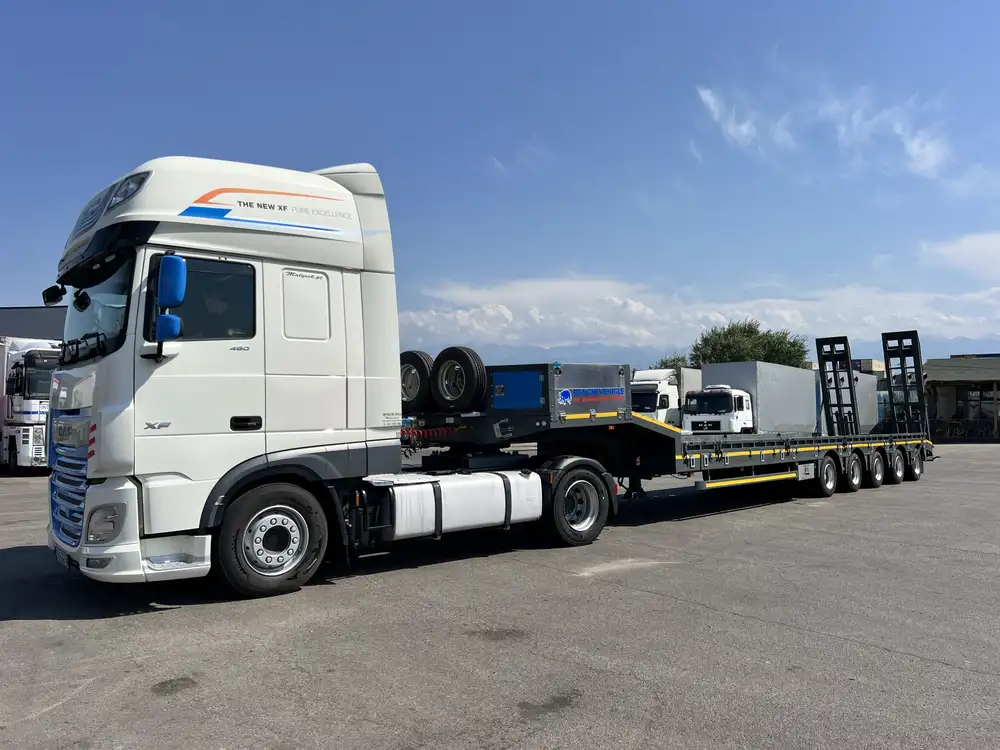
Material Durability
The trailer’s construction material impacts its longevity, maintenance requirements, and overall performance. High-quality materials like steel or aluminum offer superior durability and resistance to wear and tear.
Advantages of Steel:
- Exceptional strength and durability.
- Enhanced load-bearing capacity.
- Greater resistance to impact and harsh conditions.
Advantages of Aluminum:
- Lightweight, improving fuel efficiency.
- Corrosion-resistant properties.
- Easier to clean and maintain.
Ventilation and Lighting
Proper ventilation is crucial for maintaining a comfortable environment, preventing overheating, and ensuring adequate air circulation. Additionally, sufficient lighting facilitates visibility during loading, unloading, and interior inspections.
Ventilation Features:
- Roof and side vents.
- Adjustable windows and doors.
- Integrated fans or ventilation systems.
Ease of Cleaning
Hygiene is paramount in livestock transportation to prevent disease and ensure animal welfare. Trailers with easy-to-clean surfaces and accessible drainage systems simplify maintenance and sanitation.
Features for Easy Cleaning:
- Removable floors or mats.
- Smooth surfaces without crevices.
- Built-in watering and feeding systems that are easy to clean.

Safety Features
Safety features protect both the animals and the transporters. These include secure latching systems, non-slip surfaces, and emergency access points.
Essential Safety Features:
- Reinforced doors with secure locks.
- Anti-slip flooring materials.
- Emergency exits for quick access in case of accidents.
Why Choose CarMax Trailer for Your Livestock Transportation Needs?
At CarMax Vehicle, we pride ourselves on delivering top-of-the-line livestock trailers engineered for excellence. Our commitment to quality, innovation, and customer satisfaction sets us apart in the industry.
Superior Build Quality
Our trailers are constructed using high-grade materials, ensuring durability and longevity. Whether you choose a steel or aluminum frame, CarMax Trailer guarantees a robust build that withstands the rigors of daily transportation.
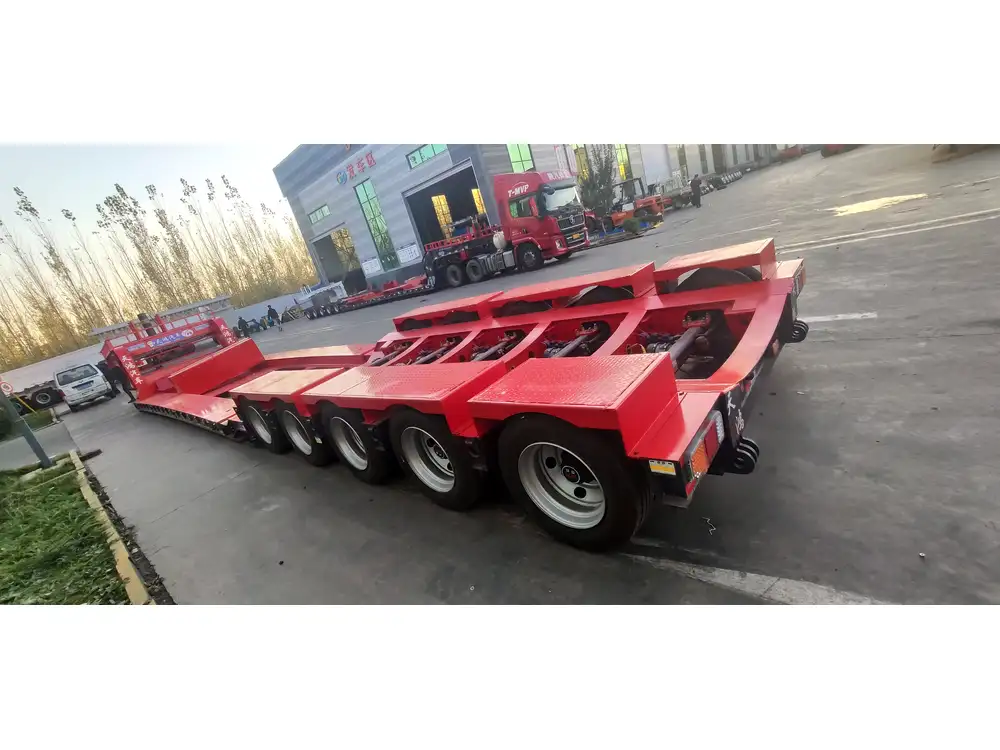
Customization Options
We understand that each customer has unique requirements. CarMax Trailer offers customizable options, allowing you to tailor the trailer’s specifications to match your specific needs, whether it’s size, layout, or specialized features.
Enhanced Safety Features
Safety is at the forefront of our design philosophy. Our trailers come equipped with advanced safety features, including secure latching systems, anti-slip flooring, and optimal ventilation to ensure the well-being of your livestock during transit.
Efficiency in Design
Our trailers are designed for maximum efficiency, facilitating easy loading and unloading, minimizing driver fatigue, and optimizing fuel consumption. The thoughtful layout and user-friendly features make CarMax Trailer the preferred choice for livestock transportation.
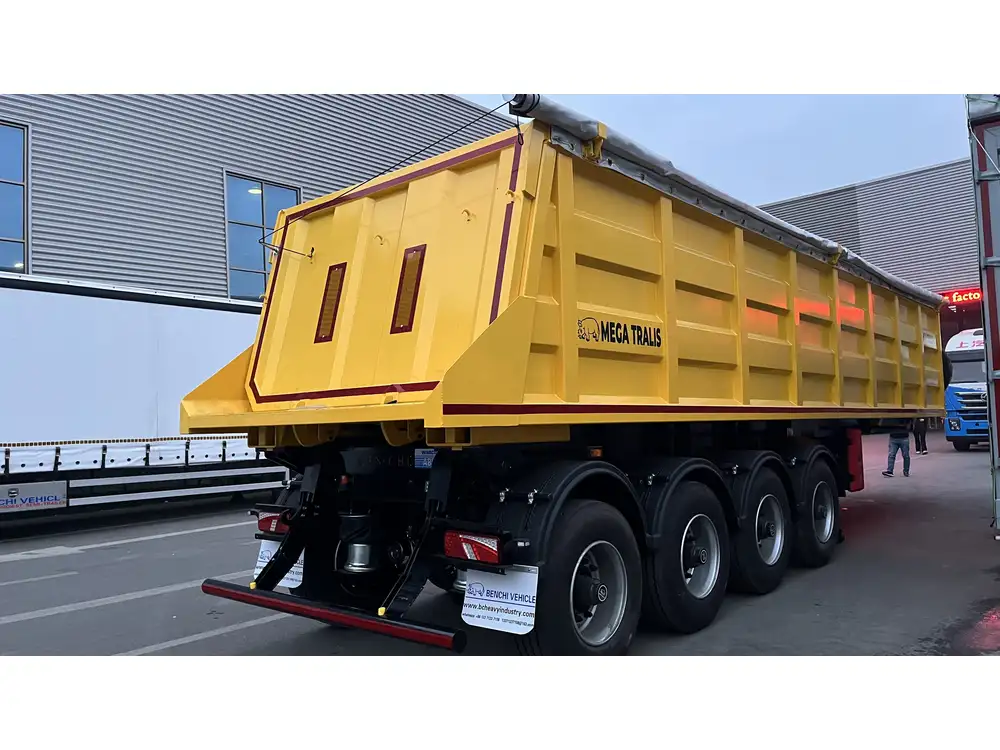
Maintenance and Best Practices for Livestock Trailers
Proper maintenance of your livestock trailer is essential to ensure its longevity and the safety of your animals. Implementing regular maintenance routines and adhering to best practices can prevent costly repairs and enhance the trailer’s performance.
Regular Cleaning
Maintaining a clean trailer environment minimizes the risk of disease transmission and ensures the comfort of your animals. Clean the trailer after each use, focusing on removing waste, spilled feed, and other debris.
Cleaning Tips:
- Use non-toxic cleaning agents to avoid harming animals.
- Rinse the trailer thoroughly to eliminate residue.
- Allow the trailer to dry completely before the next use to prevent mold and mildew.
Inspection of Components
Regularly inspect all trailer components, including tires, brakes, lights, and structural elements. Early detection of wear and tear can prevent accidents and costly repairs.
Inspection Checklist:
- Check tire pressure and condition.
- Inspect brake functionality.
- Examine lights and electrical systems.
- Assess the integrity of the frame and flooring.

Preventive Maintenance
Implementing preventive maintenance practices extends the lifespan of your trailer and ensures optimal performance. Schedule routine checks and address minor issues before they escalate.
Preventive Maintenance Practices:
- Lubricate moving parts to reduce friction and wear.
- Tighten all bolts and fasteners regularly.
- Replace worn-out parts promptly to maintain safety standards.
Compliance and Regulations for Livestock Transport
Adhering to legal requirements and industry standards is crucial for livestock transportation. Compliance ensures the welfare of animals and avoids legal repercussions.
Legal Requirements
Different regions have specific regulations governing livestock transportation, including trailer specifications, loading protocols, and journey limits. Familiarize yourself with local laws to ensure compliance.
Common Legal Requirements:
- Maximum and minimum trailer dimensions.
- Mandatory safety features.
- Permitted journey durations without rest.

Animal Welfare Standards
Maintaining high animal welfare standards during transportation is not only ethical but also legally mandated in many jurisdictions. Proper ventilation, space allocation, and access to water are fundamental to meeting these standards.
Animal Welfare Practices:
- Ensure adequate space per animal.
- Provide clean water and feed.
- Minimize stress through gentle handling and smooth transit conditions.
Safety Regulations
Safety regulations focus on preventing accidents and ensuring secure transportation. This includes securing the trailer to the towing vehicle, proper lighting, and visibility standards.
Safety Compliance Measures:
- Use approved hitching mechanisms.
- Ensure all lights and signals are functional.
- Maintain clear visibility for the driver.
Innovations in Livestock Trailer Design
The livestock transportation industry is continually evolving, with technological advancements driving improvements in trailer design and functionality. CarMax Vehicle incorporates the latest innovations to enhance the performance and efficiency of our trailers.
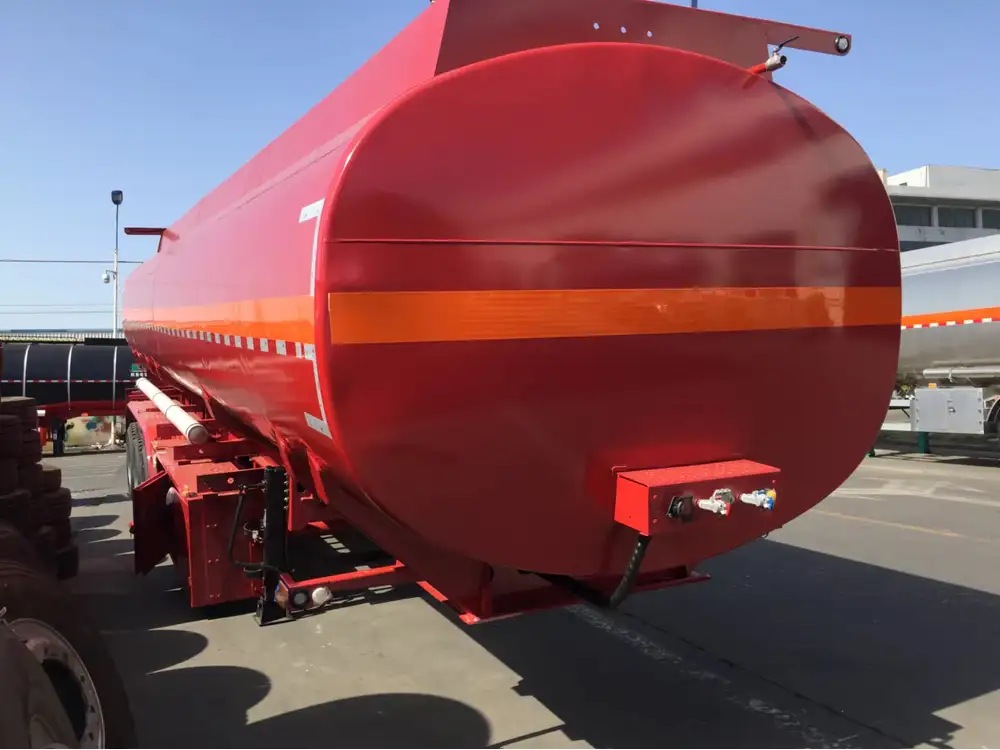
Technological Advancements
Incorporating modern technology into trailer design enhances functionality and ease of use. Features such as automated ventilation controls, GPS tracking systems, and intelligent lighting can significantly improve the transportation experience.
Innovative Features:
- Smart ventilation systems that adjust based on interior conditions.
- GPS tracking for real-time monitoring of trailer location.
- Automated lighting for better visibility during loading and unloading.
Sustainable Materials
Sustainability is becoming increasingly important in trailer manufacturing. Utilizing eco-friendly materials and energy-efficient designs reduces the environmental impact and promotes responsible farming practices.
Sustainable Practices:
- Use of recyclable materials in trailer construction.
- Implementation of energy-efficient lighting and ventilation systems.
- Design optimization for reduced material usage without compromising strength.
Automation and Smart Features
Automation and smart features streamline operations, making livestock transportation more efficient and less labor-intensive. Automated loading systems, smart sensors for monitoring animal conditions, and integrated management software are transforming the industry.
Smart Features:
- Automated ramps and loading mechanisms.
- Sensors for monitoring temperature, humidity, and animal movement.
- Integrated systems for managing transportation logistics.
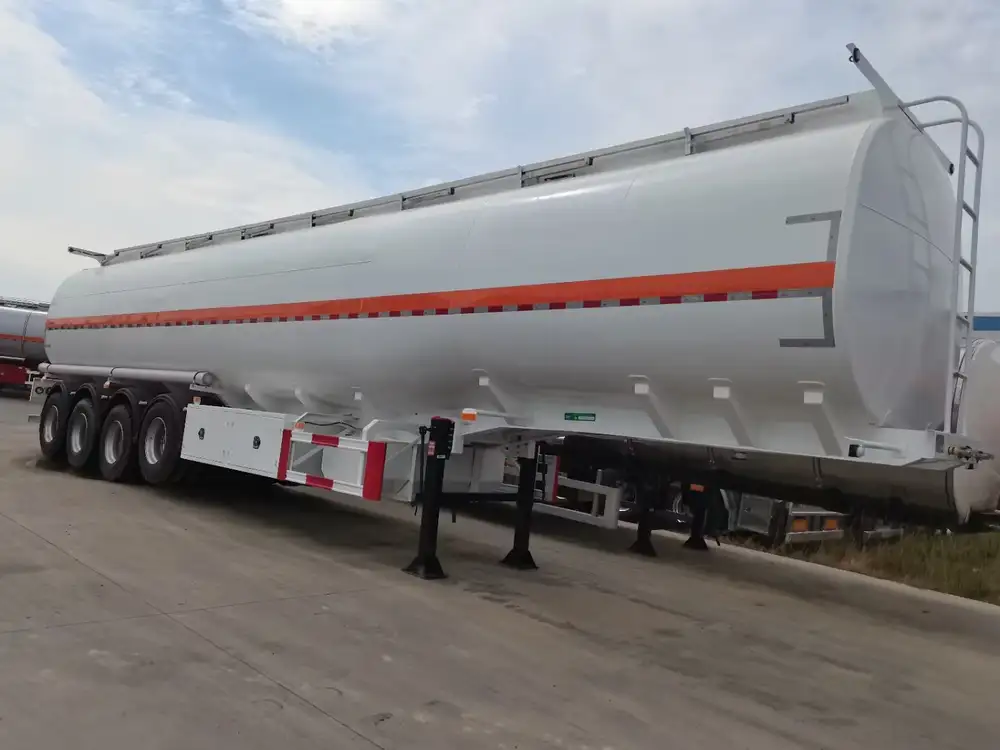
CarMax Trailer vs. Competitors: A Comparative Overview
Choosing the right livestock trailer involves evaluating various options to find the best fit for your needs. Below is a comparative table highlighting how CarMax Trailer stands out against other manufacturers in the market.
| Feature | CarMax Trailer | Competitors |
|---|---|---|
| Material Quality | High-grade steel/aluminum with superior durability | Varies, often lower-grade materials |
| Customization | Extensive customization options available | Limited customization options |
| Safety Features | Advanced security systems and anti-slip flooring | Basic safety features |
| Ventilation Systems | Intelligent ventilation with automated controls | Standard ventilation systems |
| Ease of Maintenance | Designed for easy cleaning and maintenance | Often difficult to clean and maintain |
| Warranty and Support | Comprehensive warranty and dedicated support | Limited warranty and support options |
| Price Point | Competitive pricing for high quality | Often higher or similar pricing with variable quality |
Best Practices for Efficient Livestock Transportation
Maximizing the efficiency and safety of livestock transportation involves adopting best practices that ensure the well-being of animals and the smooth operation of logistics.
Pre-trip Preparation
Proper preparation before setting out is crucial. This includes inspecting the trailer, planning the route, and ensuring that animals are healthy and fit for transport.
Preparation Steps:
- Conduct a thorough inspection of the trailer.
- Plan the most efficient route with minimal stress-inducing factors.
- Ensure animals are adequately hydrated and fed before departure.
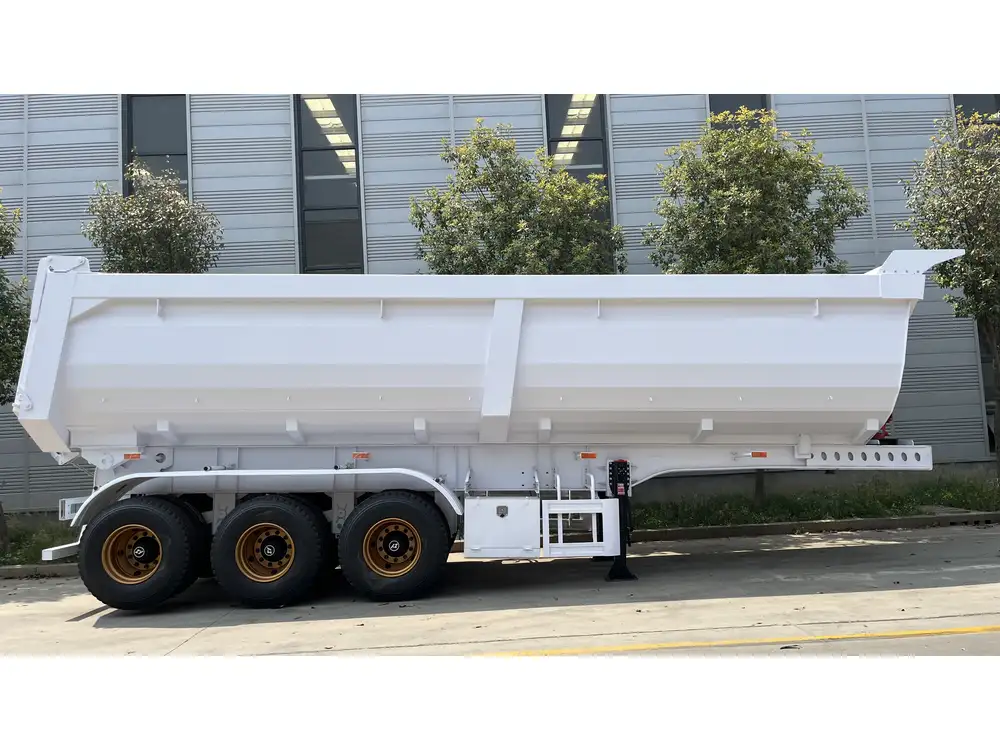
Loading and Unloading Procedures
Efficient loading and unloading procedures reduce stress on animals and prevent injuries. Gentle handling, proper equipment, and calm environments contribute to successful transportation.
Loading Tips:
- Use non-slip ramps and steps.
- Maintain a calm demeanor to reduce animal stress.
- Load animals in a consistent and orderly manner.
Unloading Tips:
- Ensure the unloading area is safe and free from hazards.
- Guide animals gently to prevent panic or injury.
- Provide immediate access to water and feed post-transport.
In-transit Care
Monitoring animals during transit is essential to address any issues promptly. Regular checks on ventilation, temperature, and animal behavior help maintain a safe environment.
In-transit Care Practices:
- Monitor ventilation and adjust as needed.
- Ensure consistent temperature regulation.
- Observe animal behavior for signs of distress or health issues.
The Importance of Choosing the Right Livestock Trailer
Selecting the appropriate livestock trailer has far-reaching implications for animal welfare, operational efficiency, and compliance with regulations. A well-designed trailer not only ensures the safety and comfort of animals but also enhances the productivity and reputation of your farming or transportation business.
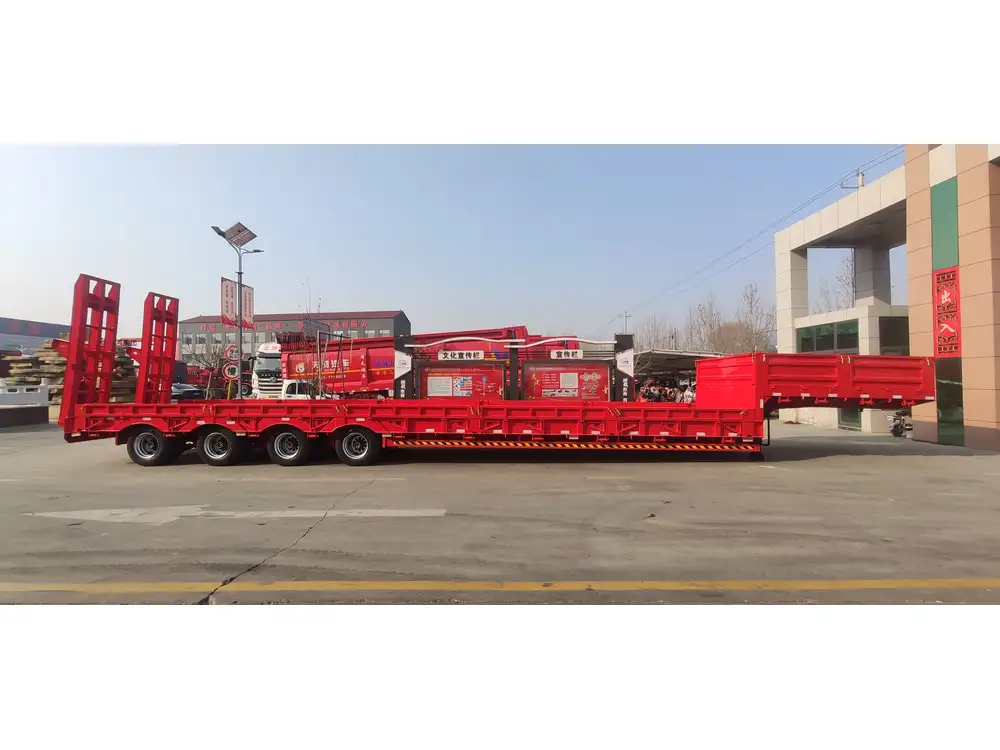
Enhancing Animal Welfare
A high-quality livestock trailer minimizes stress, prevents injuries, and promotes overall health during transportation. Features like proper ventilation, secure flooring, and adequate space contribute to the well-being of the animals.
Boosting Operational Efficiency
Efficient trailer design facilitates smooth loading and unloading processes, reduces transit times, and minimizes fuel consumption. This translates to cost savings and improved productivity for your operations.
Ensuring Compliance and Avoiding Penalties
Adhering to legal standards and industry regulations safeguards your business against potential fines and legal issues. A compliant trailer design reflects your commitment to ethical practices and animal welfare.

Conclusion
Livestock trailers are indispensable tools in the agricultural and transportation industries, ensuring the safe and humane movement of animals. At CarMax Vehicle, we are dedicated to providing top-tier livestock trailers that embody quality, innovation, and reliability. By understanding the definition, types, and critical features of livestock trailers, you can make informed decisions that enhance your operations and uphold the highest standards of animal welfare.
Frequently Asked Questions
1. What are the key differences between enclosed and open livestock trailers?
Enclosed trailers provide complete protection from external elements and enhance security, making them ideal for long-distance transportation and protecting animals from harsh weather and predators. Open trailers, on the other hand, offer superior ventilation and visibility, suitable for short-distance trips and animals that thrive in well-ventilated environments.
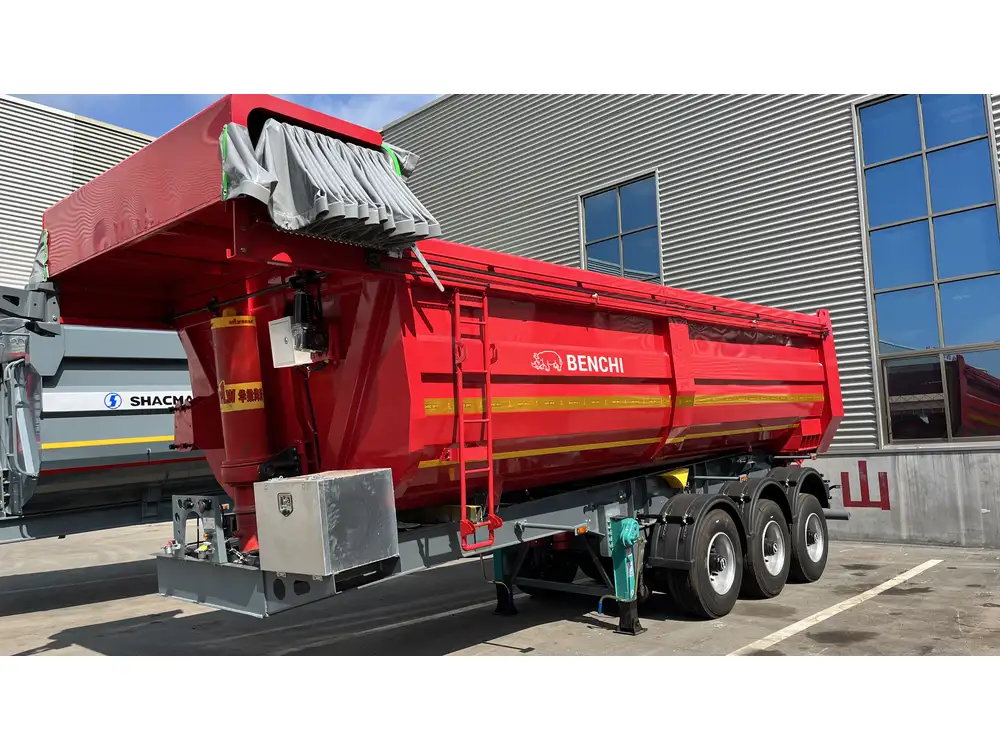
2. How do I determine the appropriate size of a livestock trailer for my needs?
Consider the number and type of animals you plan to transport, ensuring each animal has adequate space. Factor in future growth, the species-specific space requirements, and the frequency of transportation to select a trailer that accommodates your current and future needs effectively.
3. What maintenance practices are essential for prolonging the lifespan of a livestock trailer?
Regular cleaning, routine inspections, and preventive maintenance are crucial. This includes cleaning the interior after each use, inspecting tires and brakes, lubricating moving parts, and addressing any signs of wear or damage promptly to maintain the trailer’s integrity and functionality.
4. Are there specific regulations for transporting different types of livestock?
Yes, regulations can vary based on the species being transported. It’s essential to familiarize yourself with local, regional, and national laws regarding trailer specifications, loading protocols, journey durations, and animal welfare standards to ensure compliance and avoid legal issues.
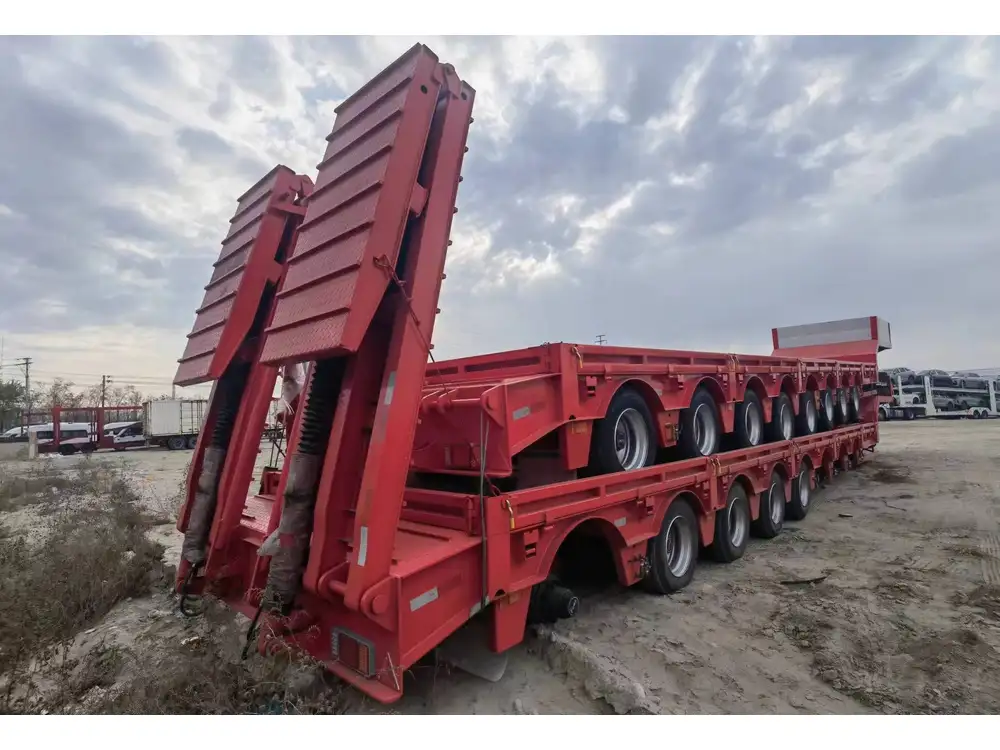
5. Can livestock trailers be customized to meet specific transportation needs?
Absolutely. CarMax Trailer offers extensive customization options, allowing you to tailor the trailer’s size, layout, ventilation systems, flooring materials, and other features to meet your specific transportation requirements, ensuring optimal safety and comfort for your livestock.



